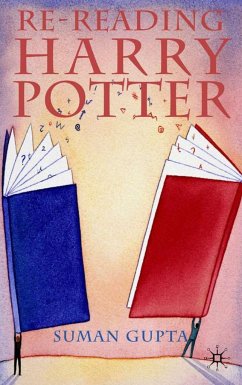This is the first extended text-based analysis of the social and political implications of the Harry Potter phenomenon. Arguments are primarily based on close readings of the first four Harry Potter books and the first two films - in other words, a 'text-to-world' method is followed. This study does not assume that the phenomenon concerns children alone, or should be lightly dismissed as a matter of pure entertainment. The amount of money, media coverage, and ideological unease involved indicates otherwise. The first part provides a survey of responses (both of general readers and critics) to the Harry Potter books. Some of the methodological decisions underlying this study itself are also explained here. The second part examines the presentation of certain themes, including gender, race and desire, in the Harry Potter books, with a view to understanding how these may impinge on social and political concerns of our world.
'Suman Gupta's book, Re-Reading Harry Potter, should be required reading for anyone who takes the Harry Potter novels seriously. His study will make a major contribution to the already-flourishing scholarship on the Harry Potter series/phenomenon because it is incisive, reflective, and original. Gupta's major purpose is to understand what constitutes the popular phenomenon of the books and their social and political implications and effects by using a text-to-world methodology. He is critical and most perceptive, pointing out the contradictions and ideological tendencies of the novels with great clarity. His explanation of the Harry Potter phenomenon is most convincing and fits well with his critique of unthinking reading and of elitism that are disturbing forces in modern society which often account for literary bestsellers.' - Professor Jack Zipes, University of Minnesota, USA
'...a closely argued piece about the sinister side of the Potter phenomenon...If Gupta isright, the secret of Harry Potter's success must be that the books offer what we 'unthinkingly' desire, or, worse, that there is a growing tendency towards irrational belief.' - Times Higher Education Supplement
'...a closely argued piece about the sinister side of the Potter phenomenon...If Gupta isright, the secret of Harry Potter's success must be that the books offer what we 'unthinkingly' desire, or, worse, that there is a growing tendency towards irrational belief.' - Times Higher Education Supplement








